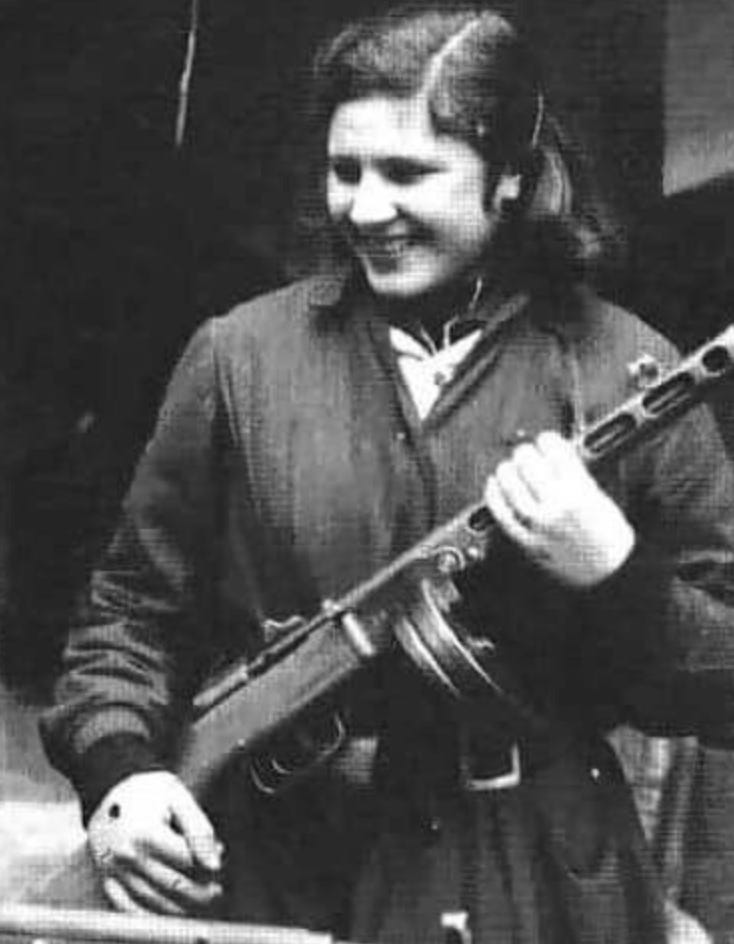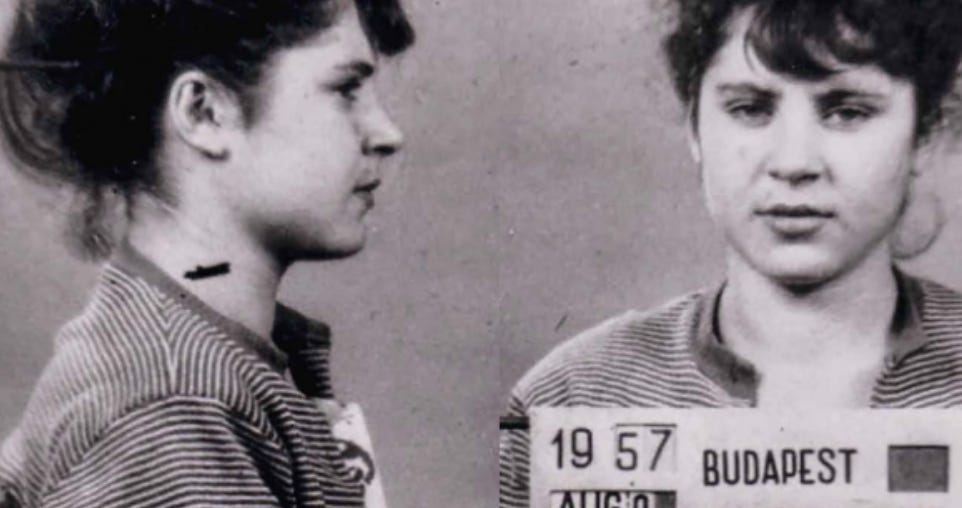A short note to the entire list to remind you that in a few hours, we are going to be doing a livestream broadcast to talk about Angel Studios and the docuseries based on Live Not By Lies that is under consideration by the people behind this summer’s surprise blockbuster Sound Of Freedom.
If you’re interested in learning more about the project, by all means tune in. You can get to the livestream by clicking this link.
You’ll hear from the director, the producers, and me.
Just tonight in Budapest, I was having dinner with a Hungarian work colleague and his wife. They were talking about how when they were at college in the UK, they would run into British students who were proudly communist. “Don’t you know what communism is?!” they would say, dumbfounded. “We’re from Hungary. Our people lived through it. You don’t want that here!”
Nobody cared.
I told my hosts tonight about the Live Not By Lies docuseries plan. They were eager to see it made, saying that it’s really important. We all talked for a bit about how insane it is that the Cold War ended thirty years ago, but nobody now talks about the communist experience. It’s all gone down the memory hole. The people living today who endured it are starting to die out.
These are the same people who see a new form of totalitarianism rising today, and who are trying to wake the rest of us up to it. Over 200,000 copies of Live Not By Lies have been sold worldwide. If we can get this docuseries made, we can reach far more people with the message of these survivors and resisters.
Time is of the essence. Maria Wittner, one of the Hungarian freedom fighters I interview for the book, died last year. We don’t have forever. I hope you’ll tune in to learn more about what we’re up to.
From Live Not By Lies:
Defending the right to speak and write freely, even when it costs you something, is the duty of every free person. So says Mária Wittner, a hero of the 1956 Hungarian uprising against Soviet occupation. A communist court sentenced Wittner, then only twenty, to death, though this was later commuted to life imprisonment.
“Once I said to one of the guards in prison, ‘You are lying.’ For that alone, I was taken to trial again,” remembers the feisty Wittner. “The state prosecutor said to me, ‘Wittner, why did you accuse the guard of being a liar? Why didn’t you just say, ‘You’re not telling the truth’? I said, ‘It matters that we speak plainly.’”
For her insolence, Wittner was sent back to prison with extra punishments. She had to sleep on a wooden bed with no mattress and was given reduced rations. By the time her sentence was commuted and she was released, Wittner weighed scarcely one hundred pounds. Nevertheless, she insists that a broken body is a price worth paying for a strong and undefiled spirit.
“We live in a world of lies, whether we want it or not. That’s just the case. But you shouldn’t accommodate to it,” she tells me as I sit at her table in suburban Budapest. “You will be surrounded by lies—you don’t have a choice. Don’t assimilate to it. It’s an individual decision for each person. If you want to live in fear, or if you want to live in the freedom of the soul. If your soul is free, then your thoughts are free, and then your words are going to be free.”
Under hard totalitarianism, dissenters like Wittner paid a hard price for their freedom, but the terms of the bargain were clear. Under soft totalitarianism, it is more difficult to see the costs of compromising your conscience, but as Mária Wittner insists, you can’t escape the decisions. You have to live in a world of lies, but it’s your choice as to whether that world lives in you.
More:
Mária Wittner, now in her eighties, is regarded by her countrymen as a national hero for fighting the Soviets when they invaded Hungary in 1956. She was only a teenager then. The communist regime arrested her shortly after she turned twenty, and a year later, sentenced her to death. Her sentence was later reduced because of her youth. But she endured terrible grief and pain in her eight months on death row.
“There was an execution either every day or every other day, by hanging,” she tells me. “The people who were being brought to the execution, each one said their name aloud and left some sort of message in their final words. Some sang the national anthem, others praised their country, there were people saying, “Avenge me!”
There were days when several people were hanged, even seven a day. Wittner’s friend Catherine was also sentenced to death. They spent Catherine’s last night together in the cell, and said their final goodbyes after sunrise.
Wittner explains:
The guards took her. The last sight I saw of her was that she straightened herself up and went with her back ramrod straight. The door closed, and then I was left alone. I started to bang on the door, shouting,
“Bring her back!” even though I knew perfectly well that it wouldn’t matter. Then I fainted. When I came to my senses, I swore to myself that I will never be silent about what I have seen, if I have the opportunity to bear witness.
This, she believes, is why her life was spared: so that she could to tell the world what the communists did to people like her.
“I’ve been thinking a lot about fear, as such,” she says. “What is fear? Someone who is afraid is going to be made to do the most evil things. If someone is not afraid to say no, if your soul is free, there is nothing they can do to you.”
The old woman looks at me across her kitchen table with piercing eyes. “In the end, those who are afraid always end up worse than the courageous.”
Maria Wittner passed away on September 14, 2022.
We cannot let the stories of these brave men and women go to the grave with them. They have so much to teach us.
Remember: here is the link for the livestream.
And if you want to register interest in the project, go to this Angel Studios site, where you can watch a short promotional film we made about the docuseries.
(Paid subscribers can comment below.)






It'll be archived for later viewing.
Excited for this. Do you know if the stream will be available to watch later on if we can't hop on live?